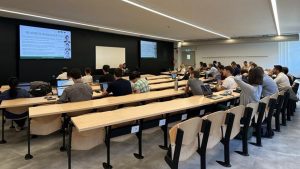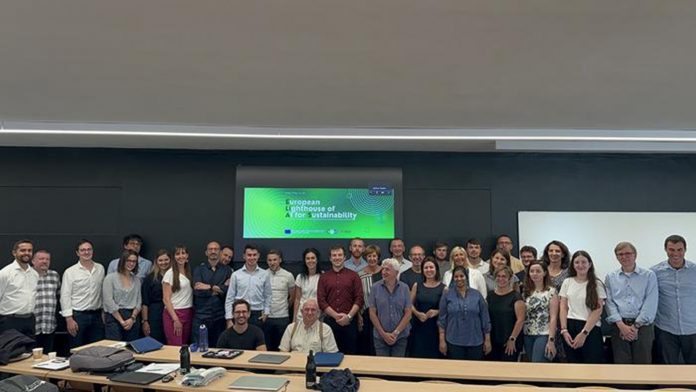Funded by the European Union, the Elias project is focused on Artificial Intelligence research as a driver for economic development and sustainable innovation.
Artificial Intelligence is a growing global topic, with many research groups working to implement the technology in a diverse range of sectors.
To establish Europe as a leader in Artificial Intelligence research, the key to being competitive in the field is to aim for broader goals.
The Elias project is staying ahead of the competition due to its structure as a network. It has 34 partner organisations and other affiliated members.
Aims of the Elias project
Held as a rare example of collaboration in Europe, the Elias project is aiming to build a critical mass in Machine Learning.
Within the network, the European Union has the goal of becoming a leader in the field of Machine Learning.
The researchers will work hard in the next four years to develop new computation systems and mathematical models to provide original and feasible answers to current issues.
How will the project bring the network together?
The challenge for the Elias project is bringing together the academic and business sectors in Europe.
To do this, research, international mobility for doctoral students, and support for young talents are needed for innovative start-ups to be launched.
Areas of research
The areas of research are intertwined.
Artificial Intelligence can identify the best materials to build green buildings or low impact industrial components.
The technology can also be used to monitor the migration of people coming to Europe and analyse the reasons that cause them to leave.
Artificial Intelligence can also develop cyber attack prevention systems and climate change analysis models.

The University of Trento will co-ordinate the activities of the partners
The University of Trento will co-ordinate the efforts between the universities, research centres, and private companies that are contributing to fighting today’s biggest challenges.
Niculae Sebe, professor at the Department of Information Engineering Computer Science (DISI) and contact person for the project, said: “We want technological innovations in the field of Machine Learning to improve the quality of life of people, society, and the entire planet.
“Our job will be to create algorithms that find solutions to achieve this sustainability.”
The Elias project is part of the Ellis network – the European Laboratory for Learning and Intelligent Systems. It has obtained over €13m in funding.
Elias’ future role
Looking to the future, the Elias project will help train future generations of IT experts through its mobility programmes, internships, PhD programmes, summer schools, and challenges that will lead to the creation of start-ups.
The project also includes a €500,000 allocation to provide scholarships. Further opportunities for new companies through cascading calls will also be generated.
Sebe concluded: “Elias aims to drive sustainable innovation, promote social cohesion and develop reliable Artificial Intelligence.
“We are committed to ensuring that technologies are available to businesses and citizens and have a positive impact on society.”









